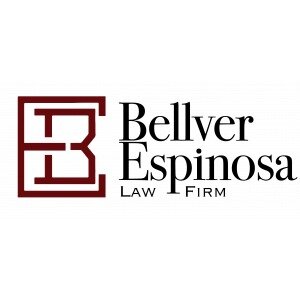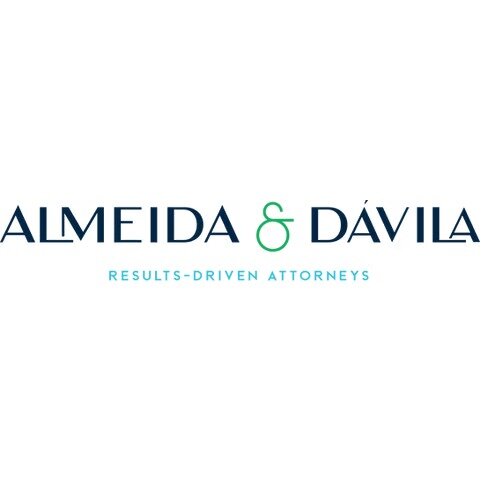Best Debt & Collection Lawyers in San Juan
Share your needs with us, get contacted by law firms.
Free. Takes 2 min.
List of the best lawyers in San Juan, Puerto Rico
About Debt & Collection Law in San Juan, Puerto Rico
Debt and collection law in San Juan, Puerto Rico, addresses the legal framework guiding the recovery of debts and the rights of both creditors and debtors. This area of law is essential for maintaining fair financial practices and ensuring that both parties have access to legal remedies. The legal system in Puerto Rico incorporates aspects of both U.S. federal law, such as the Fair Debt Collection Practices Act (FDCPA), and local statutes. San Juan, as the capital and largest city, is a central hub for legal services in Puerto Rico, offering diverse resources for those dealing with debt and collection issues.
Why You May Need a Lawyer
Seeking legal assistance in debt and collection matters can be crucial in several situations. Individuals might require a lawyer if they are facing aggressive collection tactics that may violate the FDCPA, if they are being sued over a debt, or if they need to negotiate a settlement or payment plan with creditors. Additionally, businesses may require legal help to draft or enforce debt collection agreements, or to protect themselves from debtor fraud. Legal counsel can provide guidance on the statute of limitations on debt collection, advise on bankruptcy options, and ensure that all parties comply with Puerto Rican and federal laws.
Local Laws Overview
Pertinent to debt and collections in San Juan are several local laws and regulations. Puerto Rico enforces its own statute of limitations on debt collection, which influences how long a creditor has to legally collect a debt. Alongside federal laws, Puerto Rico has consumer protection laws that safeguard debtor rights, including regulations on fair debt collection practices and truth in lending. It’s also noteworthy that San Juan’s legal services sector includes bilingual attorneys, accommodating both Spanish and English speakers, which is crucial in ensuring comprehensive legal support.
Frequently Asked Questions
What is the statute of limitations for debt collection in Puerto Rico?
The statute of limitations varies depending on the type of debt, but generally, it ranges from three to 15 years. Once this period expires, creditors cannot legally enforce the debt.
Can a debt collector contact me at any time?
No, under the FDCPA, debt collectors are prohibited from contacting consumers at inconvenient times, defined as before 8 a.m. and after 9 p.m., unless you agree to it.
What should I do if a collector is harassing me?
If you are facing harassment, you should document all instances and contact a lawyer to discuss your options, which may include filing a complaint with the Federal Trade Commission or local consumer protection agencies.
Is it possible to negotiate with creditors for a debt settlement?
Yes, many creditors are willing to negotiate debt settlements or establish payment plans. Legal counsel can assist in negotiating favorable terms.
Can my wages be garnished for unpaid debts?
In Puerto Rico, wage garnishment is allowed for certain types of debts, but strict legal procedures must be followed. Legal advice can help you understand your rights and options in such situations.
Do I have to pay a debt that is not mine?
No, if you believe a debt is not yours, you should dispute it in writing. A lawyer can help verify the debt's legitimacy and protect your rights.
What actions can a creditor take if I don't pay my debt?
Creditors might file a lawsuit to obtain a judgment against you. If successful, they could pursue wage garnishment or lien against property, depending on the circumstances.
What are my rights under the Fair Debt Collection Practices Act?
Under the FDCPA, you have rights to be treated fairly by collectors, to dispute debts, and to request no further contact until verification of the debt.
Can I be imprisoned for not paying a debt?
No, debtors' prisons are not legal in the United States or Puerto Rico. You cannot be jailed for failing to pay a civil debt.
Are there any protections for consumers against unfair lending practices?
Yes, Puerto Rico implements both federal and local laws ensuring lenders provide full disclosure of terms and fair interest rates. Legal advice can assist in addressing concerns related to lending practices.
Additional Resources
For additional support and information, consider contacting the local office of the Consumer Financial Protection Bureau, the Puerto Rico Department of Consumer Affairs (DACO), or local non-profit organizations such as Legal Aid Society of Puerto Rico. These entities can provide guidance, resources, and sometimes legal representation in debt-related matters.
Next Steps
If you need legal assistance in dealing with debt and collection issues in San Juan, the first step is to consult with a qualified attorney specializing in this field. You can find lawyers through local bar association directories or online legal services. Prepare all relevant documentation and be honest about your financial situation to receive the most effective advice. Additionally, consider attending workshops or seminars on financial literacy offered by community organizations in San Juan to better understand your rights and obligations.
Lawzana helps you find the best lawyers and law firms in San Juan through a curated and pre-screened list of qualified legal professionals. Our platform offers rankings and detailed profiles of attorneys and law firms, allowing you to compare based on practice areas, including Debt & Collection, experience, and client feedback.
Each profile includes a description of the firm's areas of practice, client reviews, team members and partners, year of establishment, spoken languages, office locations, contact information, social media presence, and any published articles or resources. Most firms on our platform speak English and are experienced in both local and international legal matters.
Get a quote from top-rated law firms in San Juan, Puerto Rico — quickly, securely, and without unnecessary hassle.
Disclaimer:
The information provided on this page is for general informational purposes only and does not constitute legal advice. While we strive to ensure the accuracy and relevance of the content, legal information may change over time, and interpretations of the law can vary. You should always consult with a qualified legal professional for advice specific to your situation.
We disclaim all liability for actions taken or not taken based on the content of this page. If you believe any information is incorrect or outdated, please contact us, and we will review and update it where appropriate.









